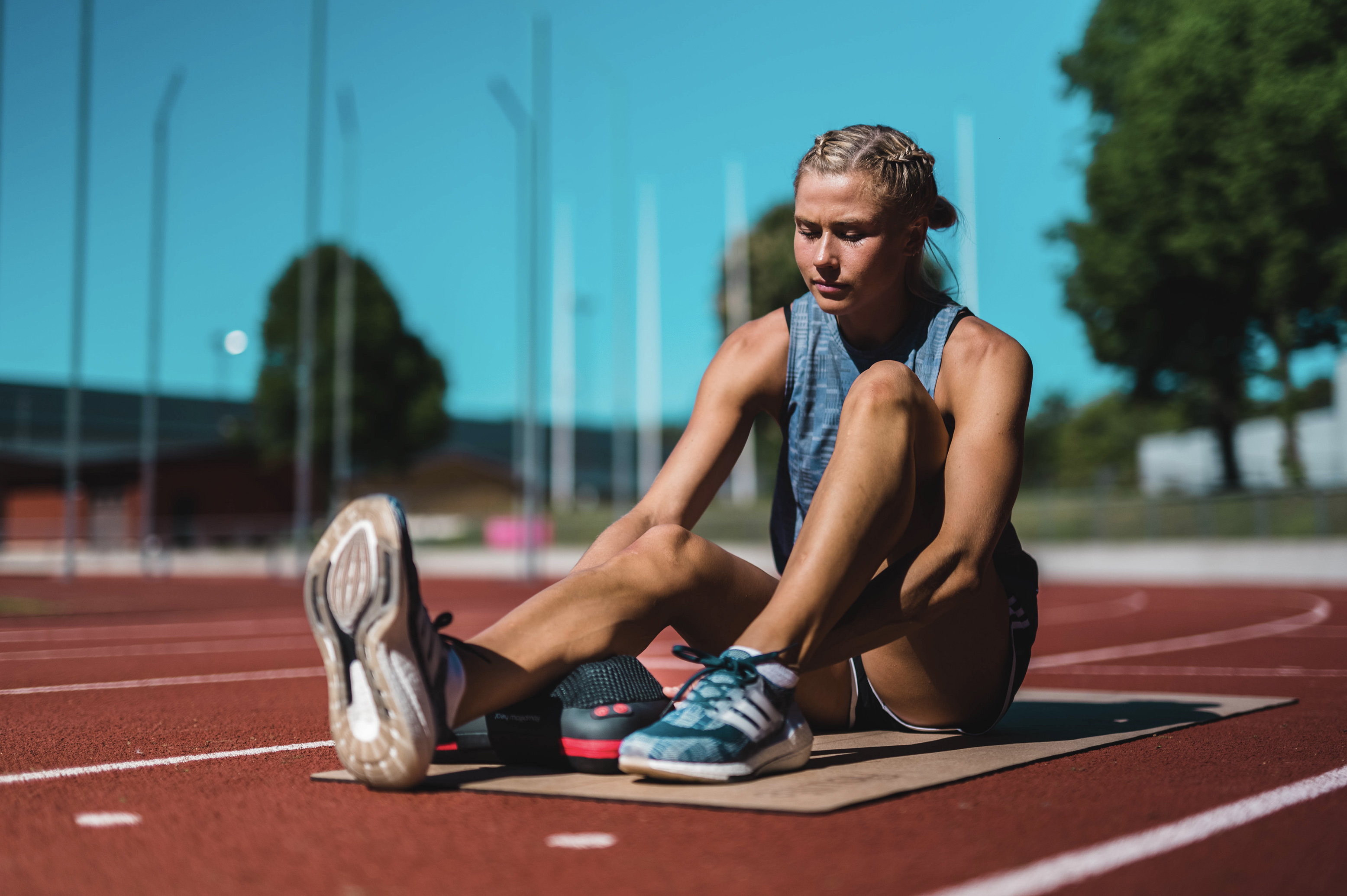We often return to recovery after exercise in our posts, but how do you do this in the best way? In this post, we go through a few simple steps to make you recover better and thus increase your performance!?
Recovery is one of the most critical steps when it comes to exercise and health, and it’s also the time when the body heals itself. Something familiar to elite athletes and others constantly exercising is strain injuries that usually occur (as the name reveals) when you overdo your workout and strain your body too much.
Common injuries:
- Periostitis
Periostitis is a widespread injury, especially among runners, due to poor shoes or substrate changes, leading to strain injuries. An easy way to treat the pain is by resting and not straining the stressed area. - Patellatendinit
This is very common in sports such as basketball or volleyball, including explosive movements and jumps. To treat and recover from Patellatendinit, it is essential to rest and not strain your knees.
Many of you probably spend a lot of time in the gym and have complete control over how you train effectively and how to get stronger. But have you considered your recovery and how to care for your muscles after training?
Recovery after training
- Fuel
We all know it’s essential to fuel up with new energy after getting rid of some, and most people recommend eating within two hours of the workout. Your recovery will be optimal by ensuring that your body has the fuel it needs. - Massage
Using a foam roller has been proven effective in reducing muscular pain after a workout. It speeds up the recovery of the muscles and acts as an anti-inflammatory agent, which will give you less pain and stiffness. We recommend our Flowroller Vibe, with vibrations that give extra deep stimulation. - Stretching
Stretching is highly underrated! It makes you more flexible, making you more effective in many exercises. In addition to this, you prevent tense muscles and pain. Our Flowmat is perfect for both stretch and relaxation. - Relaxation and sleep
The most important thing is to rest and sleep properly. A tip from us to help you relax is to use your Flowpillow on the sofa before bedtime. This will make you feel more relaxed in the body and ready for a good night’s sleep, which is essential for your recovery.

Recovery and sleep
Matthew Walker, Ph.D., talks about the importance of sleep linked to recovery and why it is one of the essential parts of the world’s most prominent athletes. For example, as does Lebron James, Roger Federer sleeps 12 hours a day. Usain Bolt sleeps about 9-10 hours. By breaking his world record of 9.58, he had only been awake for 35 minutes.
The better you sleep, the more your ability to perform improves, primarily by reducing chronic inflammation after exercise. In addition, Matthew Walker could see a linear relationship between sleep and injury risk in his studies. Athletes who sleep 6 hours or less had an 80% risk of getting injured during the season, while those who slept 9 hours or more had a chance of only 15-20%. Thus, sleep is among the most essential keys to performing at the top.
Recovery is necessary after exercise and in your everyday life, for example, after long days at work that can cause stress, sleepless nights, and stiff muscles. As mentioned earlier, sleep is an essential factor for recovery, and sometimes sleep can be a deficiency, most often in connection with feeling stressed. Sometimes stress can be so overwhelming that it becomes difficult to manage. What do you do then? We have listed 6 tips for reducing and managing your stress!
Six tips to reduce your stress
- Deep breathing
Breathing is one of our very best tools for managing stress. Take a few deep breaths when you feel that anxiety creeping up, and feel free to practice some different breathing techniques. - Prioritize sleep
Both the brain and the body needs to rest and recharge the batteries to handle all the challenges of everyday life in the best possible way. On average, an adult sleeps about 7 hours, but the need for sleep may vary; some need as much as 9 hours per night. Do you sleep enough? - Working out
Any form of exercise can help to reduce stress. Whether you prefer yoga, a walk, or a challenging workout in the gym, the secretion of the stress hormone cortisol will decrease after physical activity. Exercise also helps you sleep better! - Ask for help
Often we strive to be as independent as possible. However, no one is perfect, and everyone needs a little help now and then, don’t forget it! - Learn to say no.
Saying no can be just as difficult as asking for help, sometimes even harder! But when you feel stressed, you have to prioritize, and then “no” can be precisely what is needed. - Massage
While listening to soothing music, you can treat yourself to a massage. Massage has been shown to have a positive effect on stress. Test Flowpillow heat, your portable massager that you can use anytime, anywhere.
See stress as a reminder.
Stress is not only negative (although it usually feels that way). Instead, learn to see stress as a reminder that it’s time to take it easy and slow down! When you have learned to recognize the warning signals, you can pull the breaks before it is too late!
So do not forget to recover after training and work for a more relaxed everyday life and a life in flow!

